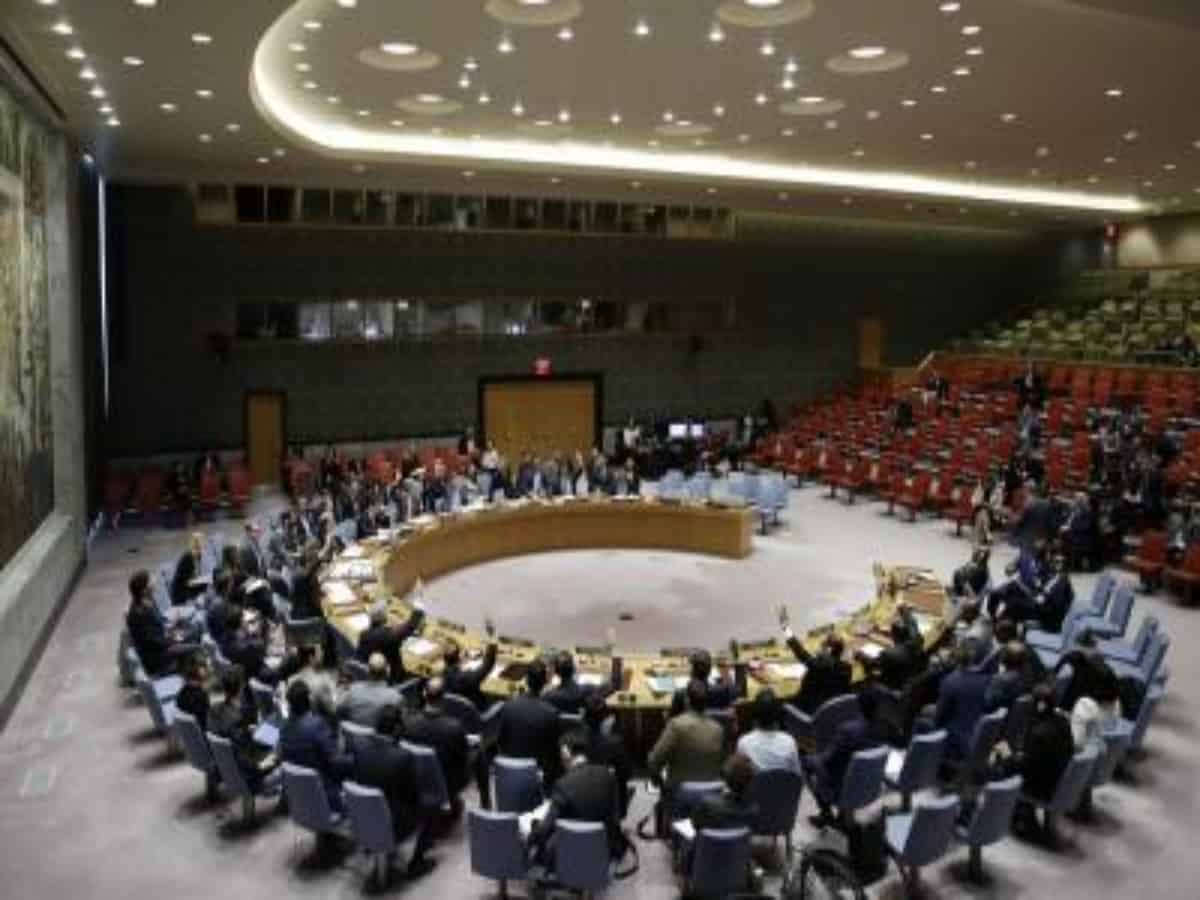
United Nations: UN Special Envoy for Syria, Geir Pedersen has called for efforts to change the worrying dynamics in Syria.
Given the bleak humanitarian and economic situation, coupled with the continued armed conflict and the dangers of military escalation, the potential for catastrophic deterioration is all too real, Pedersen told the UN Security Council on Wednesday.
Syrians are facing an ever-deepening humanitarian and economic crisis, both inside and outside the country, and in both government-controlled areas and areas outside government control, where the situation remains most dire, especially in camps for the displaced, he said through a video link.
“We are dealing with a situation that is the result of more than a decade of war and conflict, corruption and mismanagement, the Lebanese financial crisis, Covid-19, sanctions, and, indeed, the fallout from the war in Ukraine,” he added.
According to UN assessments, parents in the country are skipping meals so their children can eat; electricity and fuel are scarcer than ever; many are increasingly unable to access clean water and healthcare or even to communicate with loved ones or colleagues, because of connectivity outages and failing infrastructure, the UN Special Envoy said.
The Syrian government has closed state agencies for several days as a result of energy shortages; some civil servants are unable to travel to work because they lack fuel; and in Damascus, there were tangible signs of a worsening crisis: dark streets, unlit houses and little traffic. Payments come in thick stacks of bills as the Syrian pound depreciates to new record lows, he added.
“We need to shift these worrying dynamics,” said Pedersen.
The first priority, he added, is to step back from escalation and restore relative calm on the ground, Xinhua news agency reported.
A patchwork of agreements and arrangements reached bilaterally between some key actors brought about a relative reduction in violence in recent years. But these fragile agreements and arrangements do not amount to a comprehensive nationwide ceasefire. Violence continues, and the careful work to establish these agreements and arrangements could be undone in a moment, he added.
“Any escalation could re-ignite a conflict that in reality has not ended, endangering regional stability and creating conditions in which terrorism can thrive. Once again, it would be civilians who would pay the price,” he warned.
The second action needed is to renew the framework in the Security Council on the humanitarian front, said Pedersen.
Unfettered humanitarian access to all Syrians in need throughout the country, by all modalities, remains imperative. Cross-border aid continues to be indispensable, he added.
“I understand important progress has been made on all of the priorities of Resolution 2642, namely cross-border and cross-line access as well as the implementation of early-recovery projects. We should protect and build on this progress through the extension of the resolution, for the benefit of all Syrians,” he said.
Resolution 2642, which provides for a cross-border crossing through Turkey for the delivery of humanitarian aid into Syria, expires in January 2023.
“This is a core message to you today: please continue to support this framework; millions of Syrians depend on it; please also be generous in responding to the UN’s humanitarian appeals.”
The third point is the need to resume and make more substantive the Constitutional Committee meetings in Geneva. The UN stands ready to resume Constitutional Committee meetings in Geneva as soon as readiness to do so from other sides is there, the UN Special Envoy added.
The fourth point is to prioritise work on the detained, the disappeared, and the missing, said Pedersen.
The fifth point is to further the dialogue toward identifying and implementing initial step-for-step confidence-building measures, he added.
“I am convinced that it is possible that the Syrian stakeholders and international players could find a way to make some precise, concrete, reciprocal steps that could move us some way along the path of Resolution 2254. If this were done, I believe it could begin to have a meaningful impact on the lives of ordinary Syrians, shift some of the negative dynamics on the ground, and build some trust and confidence between the parties and in the political process.”
The sixth point is the inclusion of Syrian civil society in the political process, said Pedersen, noting that the role for civil society to help rebuild Syria’s social cohesion is more imperative today than it has ever been.
2022 has been a very difficult year, with the needs of the Syrian people reaching the worst levels since the conflict began, against a backdrop of further economic collapse and ongoing violence; no tangible progress made in advancing the political process; and global geopolitics making a difficult situation even more complicated, he said.
“Syrians of all backgrounds tell me that the current situation is unacceptable and also unsustainable. And I do sense a growing realisation in all quarters that allowing the status quo to continue and the situation to deteriorate is simply not an option,” Pedersen added.
Syria needs sustained international attention, starting with unity in the Security Council behind the humanitarian framework, but also on all the other priorities, he said.
“We must give Syrians hope for the future. Our goal remains a comprehensive political solution in line with Security Council Resolution 2254, that meets the legitimate aspirations of all Syrians and restores Syria’s sovereignty, independence, unity and territorial integrity,” Pedersen added.



